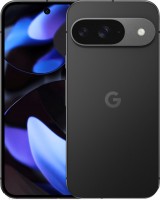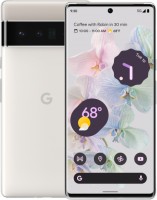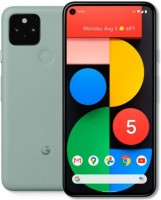Mobile Phones Google series Pixel 8
Google Pixel 8
Literally a month after the presentation of the iPhone 15, Google also prepared its answer, presenting the new eighth generation of Google Pixel smartphones. As has been the case for the last couple of years, Google is gradually shifting its focus from the smartphone’s hardware to its ability to interact with various smart AI-based enhancers. In particular, the Audio Eraser editor has learned to remove excess noise from recorded audio, the Video Boost function can make videos smoother after the fact, and the built-in AI editor can change facial expressions in photographs and literally delete or change objects in photographs in just 2 clicks.
 |
According to tradition, at the launch Google presented the regular and enlarged “pro” version of the Pixel 8. The classic Pixel 8 is equipped with the far from most powerful 9-core Tensor G3 processor from Samsung. The amount of RAM is 8 GB. The role of the screen is played by a 6.2-inch OLED screen with a resolution of 2400x1080 pixels, a refresh rate of 120 Hz and an impressive peak brightness of 2000 nits. The main camera in Pixel 8 is represented by two sensors with a resolution of 50 MP + 12 MP, a pumped-up optical stabilization system and support for video recording in “4K + 60 FPS” mode.
The Pixel 8 Pro follows the original model in terms of hardware and additional features, while it has a more massive 6.7-inch screen, and a more advanced camera hides a full-fledged telephoto lens plus a 5x optical zoom. Otherwise, Pixel 8 smartphones support wired and wireless charging, are equipped with NFC chips, high-quality stereo speakers and an in-display fingerprint scanner. Made of metal and impact-resistant glass, the case is protected from water and dust according to the IP68 standard. At the same time, the Pixel Pro 8 has almost 20% higher battery capacity, and wired and wireless charging is a little more powerful.




